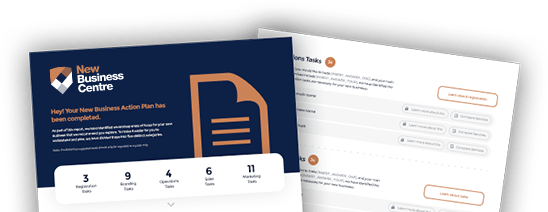Startups and big companies can benefit from a business plan.
The most common business planning scenario for a start-up is founders breaking down uncertainty into manageable chunks. The necessity becomes evident when you realize you require predicted costs, expenses, and sales.
On the other hand, established companies utilize business plans to manage and guide their strategy to adapt to the market and leverage new opportunities. Their plans are frequently used to develop metrics, reinforce strategy, track performance, and other responsibilities.
Read on if you have also wondered whether a business plan is what you need to help your enterprise.
Identifying the Best Business Plan
It is only natural to find a wide range of business plan types because they serve different objectives.
Given this, you must first pick the right one for your business. Before drafting the business plan, pay attention to your target market and your business goals.
While practically every business plan has the same essential parts, your business plan format will rely on your specific audience and the nature of your enterprise.
Parts of a Top-Notch Business Plan
Certain fundamental aspects are present in almost all business plans, even though the types of plans may differ. They may include review schedules, strategy overview, milestones, responsibilities, metrics, and basic projections are some examples. Sales, costs, expenses, and cash flow are all included in the predictions.
These essential parts develop naturally following the business’s genuine needs.
The business plan development described here can provide entrepreneurs the guidance they require for developing a plan to best suit their needs.
Steps in Crafting Your Business Plan
-
Research
Analyzing the environment in which you want to operate is highly critical. The vital first research is necessary for this planning stage to understand the trends that affect your business and your decisions better to create the groundwork for and improve your chances of success.
-
Business Model
A description of your selected business model will best ensure success is ingrained in each business strategy. You should identify how each part of your business model might work together to improve the potential success of your company endeavors.
-
Initial Draft
The initial draft is a stage that entails combining the information and concepts gained in the previous two steps into a business plan framework. It is always a good idea to make a complete draft of your business plan, including necessary sections.
All operational plans should be written as part of the first draft to ensure they are all properly coordinated. An excellent business plan will contain relevant texts, charts, and graphs.
-
Development
Development is where you adjust the plan to appeal to potential investors and yourself. Strive to keep your decisions as practical as possible to guarantee everything works in your favor.
Conclusion
Lastly, as with any important document, your business plan should have the correct formatting, grammar, and spelling. You should also prepare the final set of objectives to appeal to the intended audience and be consistent with the business plan’s objectives.
We recommend collaborating with experienced professionals who can make the process a lot easier for you to succeed in this aspect of your enterprise.
If you need help with corporate branding strategy, turn to New Business Centre. We exist to help new businesses navigate the complex world of starting a new endeavor. Buy our guides now!





